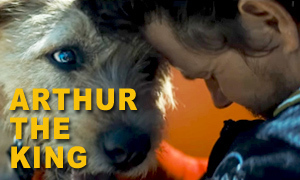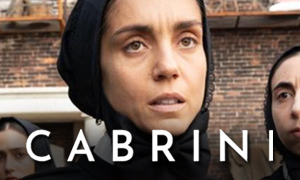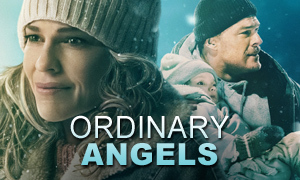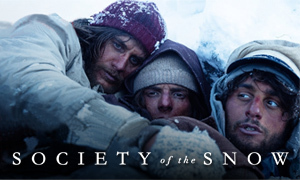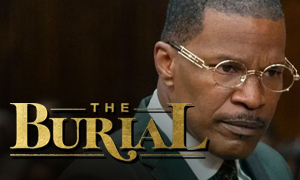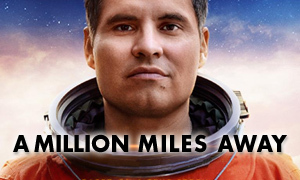Tolkien: History vs. Hollywood
| REEL FACE: | REAL FACE: |
Nicholas Hoult
Born: December 7, 1989 Birthplace: Wokingham, Berkshire, England, UK | J.R.R. Tolkien
Born: January 3, 1892 Birthplace: Bloemfontein, Orange Free State Death: September 2, 1973, Bournemouth, England, UK (bleeding ulcer and chest infection) Pictured at age 19 |
Lily Collins
Born: March 18, 1989 Birthplace: Guildford, Surrey, England, UK | Edith Bratt
Born: January 21, 1889 Birthplace: Gloucester, England, UK Death: November 29, 1971, England, UK |
Laura Donnelly
Born: 1982 Birthplace: Belfast, Northern Ireland | Mabel Tolkien
Born: 1870 Birthplace: Birmingham, England, UK Death: November 14, 1904, Rednal, UK (type 1 diabetes complications) J.R.R.'s mother |
Patrick Gibson
Born: April 19, 1995 Birthplace: Ireland | Robert Quilter 'R.Q.' Gilson
Born: 1893 Death: July 1, 1916, Northern France (WWI shell burst in Battle of the Somme) T.C.B.S. member (artist) |
Anthony Boyle
Born: June 8, 1994 Birthplace: Belfast, United Kingdom | Geoffrey Bache 'G.B.' Smith
Born: October 18, 1894 Birthplace: UK Death: December 3, 1916, France (complications from shrapnel wound) T.C.B.S. member (poet) |
Tom Glynn-Carney
Born: February 7, 1995 Birthplace: UK | Christopher Wiseman
Born: April 20, 1893 Birthplace: Edgbaston, Birmingham, England, UK Death: July 25, 1987, Milford-on-Sea, England, UK T.C.B.S. member |
Colm Meaney
Born: May 30, 1953 Birthplace: Dublin, Ireland | Father Francis Xavier Morgan
Born: January 18, 1857 Birthplace: El Puerto de Santa María, Cádiz, Spain Death: 1935, Birmingham, UK Legal guardian of J.R.R. Tolkien |
Derek Jacobi
Born: October 22, 1938 Birthplace: Leytonstone, London, England, UK | Professor Joseph Wright
Born: October 31, 1855 Birthplace: Idle, Bradford, England, UK Death: February 27, 1930 (pneumonia) Tutor of Tolkien at Oxford |
Did J.R.R. Tolkien's mother, Mabel, introduce him to mythology?
Yes. The true story behind the Tolkien movie reveals that prior to her death, Mabel Tolkien taught her two children at home. Ronald, as he was known to the family, was an apt pupil and was taught languages (including Latin), botany, and was encouraged to read many books, including fantasy stories. Mabel introduced her son to the myths and legends that would inspire his own future writing.
Was J.R.R. Tolkien orphaned at age 12?
Yes. John Ronald Reuel Tolkien (pronounced Tol-keen) was born in what is now South Africa in 1892. His English father, Arthur (pictured above), had been sent to manage a branch of a British bank there. However, Arthur died of rheumatic fever before he could return to England with the rest of the family. Tolkien, then just three-years-old, lived in near poverty with his mother Mabel and younger brother Hilary. They had first moved in with Mabel's parents in Birmingham and eventually ended up renting Fern Cottage in Rednal. When his mother died of complications from type 1 diabetes in 1904, Tolkien and Hilary were left orphaned. Like in the movie, Father Francis Xavier Morgan, a local priest who had been caring for Mabel, assumed legal guardianship of J.R.R. and his brother, making sure they received a good education. At age 16, Tolkien moved into a Birmingham boarding house with his brother Hilary. It was there that he met fellow orphan Edith Bratt.
Did a young J.R.R. Tolkien really impress his peers with his knowledge of Middle English?
A Tolkien movie fact-check reveals that this scene is likely fictional. His school days were dramatized for the movie. There is also no evidence that having some friends over to play billiards turned into a moment of rebellion against authority.
When did J.R.R. Tolkien form the Tea Club, Barrovian Society (T.C.B.S.)?
In 1911, J.R.R. Tolkien formed the tiny four-person society with friends Geoffrey Bache Smith, Robert Gilson and Christopher Wiseman while attending King Edward's School in Birmingham together. Like in the movie, the Tolkien true story confirms that this brotherhood of aspiring poets and artists often discussed art and literature while daydreaming about their futures.
As seen in the film, they often met and drank tea at Barrow's Stores near school, which inspired the name of their society. They also met in secret in the school library. After graduating, the four members stayed in touch. They met again in December 1914 at Christopher Wiseman's home in London. The meeting encouraged Tolkien to focus on writing poetry. His membership in the T.C.B.S. inspired the nine-member Fellowship in his Lord of the Rings novels.
When did J.R.R. Tolkien meet Edith Bratt?
Tolkien met future-wife Edith Bratt (portrayed by Lily Collins) when he was 16 and moved into the Birmingham boarding house in the suburb of Edgbaston. Bratt was a fellow orphan and resident at the boarding house. According to Humphrey Carpenter's authorized biography, the two had similar personalities and became friends. Given that they were both orphans in need of affection, it was only natural that a romance would blossom.
Did J.R.R. Tolkien and Edith Bratt really toss sugar cubes at fancy diners in a Birmingham teahouse?
This is mostly accurate. The Tolkien movie true story confirms that this scene is based on a real-life incident. Tolkien and Edith did toss sugar cubes into people's hats. However, in real life, they sat on a balcony at the teahouse and tossed the cubes into the hats of people walking by on the pavement down below.
Was J.R.R. Tolkien banned from seeing Edith Bratt until he was 21?
Yes. In separating the Tolkien movie's facts and fiction, we learned that he was indeed forbidden from having a relationship with Edith, 19, in part due to her older age and affiliation as a Protestant. Like in the film, Father Francis, Tolkien's guardian, also wanted him to focus on his studies, including his plans to attend Oxford. He wasn't allowed to see Edith until he turned 21.
Did J.R.R. Tolkien steal a bus and impress some pretty girls?
Fact-checking Tolkien confirms that he did steal a bus, but there weren't any girls there to impress.
Did he ever get so drunk that he woke his tutors with his outbursts?
No. This is an entertaining scene in the movie, but we found no evidence that it actually happened in real life.
Did Edith Bratt really break off an engagement with another man to be with J.R.R. Tolkien?
Yes. After they reconnected, Edith broke off her engagement with another man when Tolkien confessed that he still loved her. He asked her to marry him in January 1913 and she accepted. Edith reluctantly agreed to convert to Catholicism at Tolkien's insistence, and the two married on March 22, 1916, just prior to Tolkien going off to war.
Did J.R.R. Tolkien readily accept the call to fight for his country?
No. The movie implies Tolkien and his friends went straight to war. However, in real life, Tolkien delayed joining the military long enough to draw criticism, especially from relatives. "In those days chaps joined up, or were scorned publicly," he said years later in a letter to his son Michael. "It was a nasty cleft to be in for a young man with too much imagination and little physical courage." Tolkien delayed enlistment until he completed his degree in July 1915, almost a year after Britain entered the First World War. He left the training camps of England and arrived in France in June 1916. He spent four months in the trenches at the Battle of the Somme but was sidelined after catching trench fever. He was sent home to England in early November to recover, but he suffered relapses that kept him from fighting in the rest of the war.
Did J.R.R. Tolkien really hallucinate dragons and smokey monsters while stuck in the trenches during WWI?
No, at least we found no evidence of Tolkien mentioning this. The movie uses CGI to show the audience Tolkien's hallucinations of dragons, smokey monsters, and cloaked figures riding on horseback across the battlefield, which foreshadow some of the inhabitants of his future stories. The real Tolkien didn't mention having such hallucinations after catching trench fever, a highly contagious disease transmitted by body lice.
The illness and his ensuing health problems (fever, headaches, leg pains, rashes, eye inflammation, etc.) resulted in him either being in hospital or in home service camps for the rest of the war, which may have very well saved his life (The Guardian). In fact, the 11th Battalion Lancashire Fusiliers with which he had been part of was struck by German mortar fire, leaving many of them wounded. This was followed by a "massive bombardment" of its frontline. Tolkien wasn't the only famous author to have suffered from trench fever. C.S. Lewis and A.A. Milne also contracted trench fever during World War I.
Was Tolkien's batman in the trenches named Sam?
As J.R.R. searches for a missing member of the T.C.B.S. in the war in the Tolkien movie, he utilizes the help of his batman (a servant to an officer) named Sam. Their relationship feels like it came straight from The Return of the King. Of course, this is in part because the movie named the character Sam, a detail that from what we know is fictional.
Did Tolkien really lose two close friends in the First World War?
Yes. The true story behind the Tolkien movie confirms that two of the four members of the Tea Club, Barrovian Society were killed in the Great War. This includes artist Robert 'R.Q.' Gilson and poet Geoffrey 'G.B.' Smith. Gilson was killed by a shell burst on the first day of the Battle of the Somme on July 1, 1916. He was one of 6,380 British casualties from the 34th Division, on what became the deadliest day of battle in British Military history. Several months later on November 29, 1916 near the village of Souastre on the Doullens in France, G.B. Smith was hit by shrapnel when the 19th Battalion was shelled. He suffered severe wounds to his right arm. As his wounds became more worrying, his condition deteriorated and he died on the morning of December 3.
Just prior to his death, G.B. Smith wrote a letter to J.R.R. Tolkien:
My chief consolation is that if I am scuppered tonight there will still be left a member [of our school group] to voice what I dreamed and what we all agreed upon. For the death of one of its members cannot, I am determined, dissolve [the group]. Death can make us loathsome and helpless as individuals, but it cannot put an end to the immortal four! May God bless you my dear John Ronald and may you say things I have tried to say long after I am not there to say them if such be my lot.
Yours ever,
G. B. S.
Why doesn't the movie include the influence of Christianity on J.R.R. Tolkien's work?
Christianity is perhaps the most important influence on Tolkien's work, but its effect on him is absent from the film, which is an omission that's impossible to overlook. Instead, the film implies that the whole conception of Middle-earth and its inhabitants came directly from three things: his membership in the Tea Club, Barrovian Society that he created with three close friends (which laid the foundation for his ideas of fellowship); his experiences in the trenches during World War I; and to some degree his tumultuous courtship with Edith Bratt (who inspired his characters Arwen Evenstar and Lúthien Tinúviel). While it's true that what we see in the movie did influence him, his Christian faith had an even greater impact on his writing. Yet, it's almost completely absent from the movie, except for his guardian Father Francis (director Dome Karukoski cut a scene in which Tolkien witnesses Father Francis administering last rites to a dying patient).
Tolkien was raised Catholic (his mother was a Catholic convert), and while he was at Oxford, he would leave in the early morning and ride his bicycle to mass every day. To him, writing fantasy was a Christian endeavor, and he assigned it the technical term sub-creation, or the process of creating worlds and myths that act as a sub-set within God's primary creation. One of the earliest inspirations for his imagined world came by way of this Anglo-Saxon poem:
"Eala earendel, engla beorhtast,
ofer middangeard monnum sended…
Hail, Earendel, brightest of angels,
Sent to mankind over Middle-earth."
The poem is believed to be about the Daystar, referencing the arrival and rise of Jesus Christ. Tolkien even derived his character Eärendil from it.
He coined the term "eucatastrophe" around which he based his plots and defined it as the sudden turn of events for the good, essentially the reliance on God's protective care to ensure that the protagonist does not meet an impending doom. He saw the Incarnation of Christ as the eucatastrophe of "human history". His Christian faith is what gave his characters their optimism. Tolkien's world of Middle-earth was created in the image of our own world, many thousands of years ago. It is a simulacrum of the true creation, a representation of our world as created by God. To ignore all of this while making a movie about what informed Tolkien's writing, is an omission that the devout Catholic would have never been okay with. -The Independent
Did J.R.R. Tolkien and Edith Bratt stay married?
Yes. Despite numerous obstacles early on in their relationship, our Tolkien movie fact-check confirmed that he married Edith Bratt and they remained together for the rest of her life (Edith died first). They had four children together: John Francis (b. 1917), Michael Hilary (b. 1920), Christopher John (b. 1924), and Priscilla Anne (b. 1929). Their son Christopher was named after T.C.B.S. member Christopher Wiseman.
Edith passed away in 1971 after being married to Tolkien for more than 50 years. According to Tolkien's grandson Simon, he sometimes seemed sad and expressed how much he missed her. J.R.R. Tolkien died in 1973, just 21 months after Edith.
Did director Dome Karukoski admit to adding some fiction to the story?
Yes. He told CNET that biopics are "always a battle between fact and fiction," explaining that even if some facts were adjusted, it was only done so to find the "emotional truth" of the story. This is a convenient way of saying that fiction was added to make various aspects of J.R.R. Tolkien's story more dramatic.
Did the Tolkien estate approve of the making of the movie?
No. The film wasn't officially authorized by the Tolkien estate, but neither were The Lord of the Rings movies and those films won Oscars. In the month prior to the biopic's release, the Tolkien Estate put out a statement explaining that the family "did not approve of, authorize, or participate in the making of this film" and "they do not endorse it or its content in any way." A spokesman for the estate said that they did not plan to take legal action, but they don't want people to confuse the director's dramatization with historical fact. -The Guardian
J.R.R. Tolkien Interviews & Related Videos
Peer deeper into the true story by watching a video of J.R.R. Tolkien discussing The Lord of the Rings, in addition to some of his other interests.

